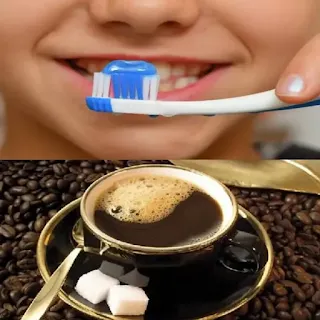People buy toothpaste based on its brand, its refreshing scent, or its cheap price. But toothpaste may contain dangerous substances.
Dentist Yulia Raevskaya, speaking to Gazeta news, points out that the presence of triclosan in the toothpaste should raise concern.
“This is a synthetic compound, which is a powerful antibacterial and broad-spectrum antifungal,” she says. “It was used in the United States first as a pesticide, and then they started actively adding it to household chemicals. At the beginning of the 21st century, it was widely used in personal hygiene products, such as soap.” And shampoos, shower gels, deodorants and toothpastes. This substance in the composition of toothpastes plays the role of an antiseptic, which destroys not only pathogenic bacteria, but also beneficial ones, which leads to the disappearance of bacteria in the oral cavity. In addition, triclosan, when released "In the environment, it is a source of toxic and carcinogenic compounds. For your information, today there are safer disinfectants in toothpastes, such as chlorhexidine. But we must know that toothpastes containing disinfectants must be used according to a doctor's prescription and during certain periods."
Toothpastes also contain paraben compounds - volatile oils (methylparaben, ethylparaben, propylparaben), which are widely used as preservatives in the cosmetic, pharmaceutical and food industries and have antiseptic and antifungal properties. It works in toothpaste as a preservative, thus prolonging its shelf life.
“It is important to know that parabens tend to accumulate in the body, are strong allergens and can cause contact dermatitis and cheilitis,” she says.
According to her, attention should be paid to the presence of surfactants in toothpaste, which have cleaning and foaming properties.
She says: “Producers often add sodium lauryl sulfate (SLS) to cosmetics. This substance is in toothpaste, responsible for the formation of a thick foam that has deodorizing and disinfecting properties. Long-term brushing with a toothpaste containing "SLS causes dryness and irritation of the oral mucosa. Therefore, people who suffer from chronic or recurrent aphthous stomatitis are prohibited from using this paste because it often leads to aggravation of the condition."
A doctor refutes myths about the danger of coffee on the stomach mucosa
Dr. Andrei Kharitonov, a gastroenterologist, announced that contrary to popular belief, consuming coffee, sour apples and citrus fruits on an empty stomach does not harm the gastric mucosa.
According to him, no evidence has yet been provided of the harm of these products, including those with high acidity, which can significantly affect the health of the gastric mucosa. However, synthetic chemical compounds, such as vinegar extract, are excluded from this.
He says: “There is currently no evidence that there are products (with the exception of synthetic chemical compounds such as vinegar extract or other solutions) capable of injuring the gastric mucosa to the point where this becomes dangerous. Therefore, coffee can be drunk on an empty stomach if it does not cause symptoms.” "Annoying."
In addition, eating spicy foods cannot cause significant damage to the mucous membrane. Because on the contrary, capsaicin found in hot peppers can improve the condition of the stomach.
He says: "Spicy foods can also stimulate microcirculation, which is necessary to protect the mucous membrane."
Tags:
health





